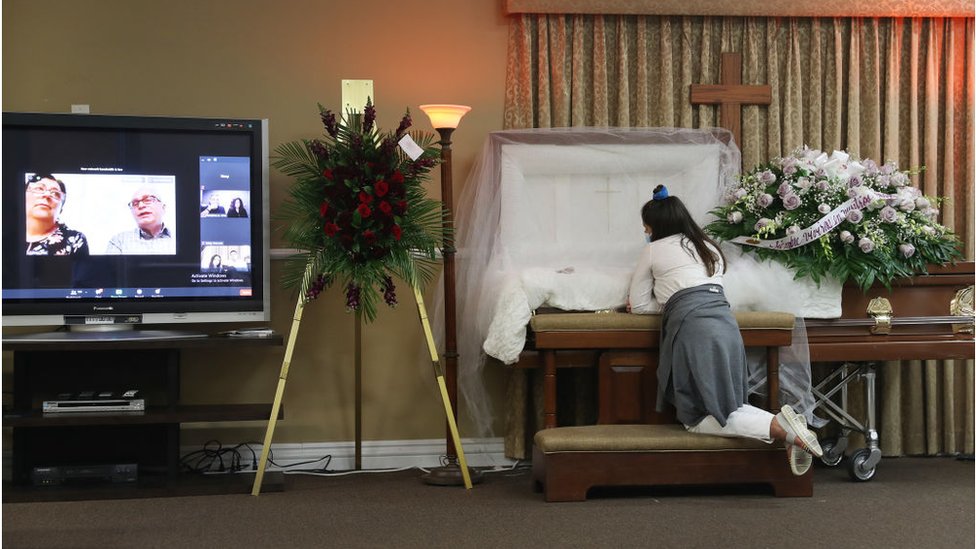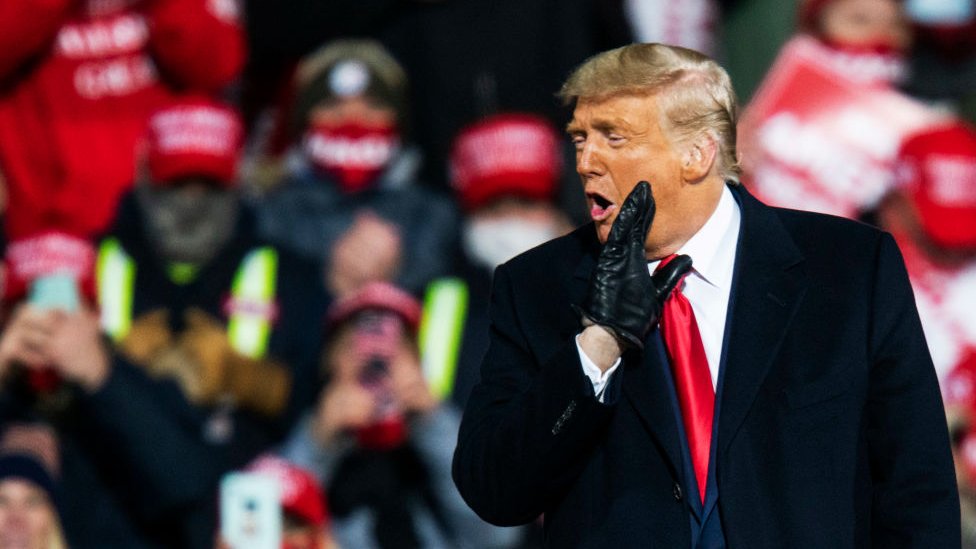My mum called it. Long before planes had been grounded. Long before hospitals became places to fear. Long before 2020 had become a byword for all that was wrong – the worst year ever.
Back then, China and cruise-ships remained the epicentres of the outbreak. We spoke with naïve optimism of track and tracing rather than blanket lockdowns. But when I booked tickets for my family to spend Easter in Britain, my mum thought the chances of us making the trans-Atlantic journey were slim.
Her prophecy, of course, turned out to be prescient; and my response would soon come to sound ridiculous: “Mum, they can’t shut down the entire world.”
My sense early on was that 2020 would go down in history, but as the year when we finally awoke to the enormity of the climate emergency. The Australian bushfires that dominated the New Year headlines were the kind of catastrophic event that would separate the past and the future into the before and the after.
The images coming out of Sydney were jolting and alarming: of the shells of the Opera House shrouded in smoke; of the residents of one of the planet’s most liveable cities going about their daily lives wearing masks.
Soon, however, those pieces of fabric would appear in every city on every continent, as a guard against a different kind of respiratory threat. The mask not only became an emblem of the year, but also of a frightening new age.
We had entered what were billed as the roaring Twenties with muffled mouths, and a sense of inner dread. Dystopian films and literature, of the kind that became strangely popular at the start of the pandemic, ask of us the question, could it happen here? 2020 provided the answer. Yes.
It was a year when time seemed to collapse in on itself; when days were sometimes hard to tell apart; when weeks seemed to merge; when timelines seemed constantly to shift. Life would return to normal in a matter of weeks, we first thought.
Then months. Or maybe it would be years.
In the meantime, we adapted to the new reality, turning living rooms into offices and bedrooms into classrooms. For many, the morning commute came to be measured in metres not miles. And many didn’t even have to travel that far. Our workplaces could often fit neatly in the palms of our disinfected hands.
Covid brought about a new casualness – of dressing from the waist up, or of not getting dressed at all. And in a time of such stringent protocols, many of us relaxed our self-imposed restraints. Monday night drinking was no longer such a taboo. Chocolate flew off the supermarket shelves almost as quickly as toilet paper. Guilty pleasures no longer came with so much guilt. We sought comfort where we could get it, and often we weren’t allowed to travel far to find it.
The handshake was banished, and so, too, were hugs, at the very moment when we needed them most. In this time of enforced estrangement, heavy with so much sadness and bereavement, maybe all of us have suffered a form of affection deficit disorder.
Yet the paradox of social distancing was that it engendered a new intimacy. Many of us have spent more time with our immediate families. And perhaps the privatisation of our lives has made us more outgoing. Maybe you’ve shared the same experience of reconnecting with people you hadn’t heard from for years, sometimes even decades.
Online reunions became a form of virtual refuge. In seeking out long lost friends from the past, we briefly escaped the present. Nostalgia of the nationalistic kind has become such a driver of modern-day politics, but this was about personal reminiscence – evoking the days when we could travel together, watch sport crowded shoulder-to-shoulder in the stands, sit in the same pews at weddings and funerals.
From our mask-covered mouths came a new vocabulary – a patois of the pandemic. New terms such as social distancing. New verbs, such as “to zoom.” New colloquialisms, such as “to Facewine”. Then there were the new pastimes. Men of a certain age felt the need to experiment with artisanal bread, and to digitally document every loaf they baked on social media.

But what I’m describing here is Covid viewed from the lofty vantage point of privilege, the coronavirus lifestyle of the fortunate few.
For millions of families, 2020 wasn’t the year of the sourdough, but rather the time they struggled to put bread on the table. Here in New York, we saw immigrant families queuing for five hours to receive the most meagre of rations – a sandwich and a pot of apple sauce.
In the suburbs, we saw middle-class families waiting all day for a food parcel in their high-end cars – BMWs, Mercedes, upmarket SUVs. On the subway, we watched homeless people turn carriages into dormitories, such was their fear of spending the night in overcrowded shelters. Just as poverty became a propagator of the pandemic, the pandemic became a propagator of poverty.
It was a year when we’ve been forced to act locally, but have been reminded constantly of the global picture – hospitals in northern Italy that looked like something out of a Renaissance hell-scape; the Pope peering out from his balcony on to an empty St Peter’s Square; the medievalism of those mass graves in New York.
But at a time when the world cried out for multilateralism, we’ve witnessed unilateralism on steroids. The search for new drugs and treatments has sometimes resembled the Cold War space race. We’ve been introduced to the concept of “vaccine nationalism,” where governments focus myopically on inoculating their own people at the cost of the global good.
In its 75th year, the United Nations has largely been sidelined, its Security Council paralysed once more by the great power rivalry between Washington and Beijing. But neither of the world’s strongest nations, the United States or China, had the ability or the inclination to assert global leadership individually.
As for the World Health Organization, the UN’s lead agency, it became ensnared in pandemic politics, facing criticism that it wasn’t tough enough on China, and hit by the withdrawal of funding from Washington, its largest donor.
There was a strong body of evidence to suggest that countries run by female leaders handled the crisis more expertly. Angela Merkel’s Germany, Jacinda Ardern’s New Zealand, Tsai Ing-wen’s Taiwan, and Mette Frederiksen’s Denmark.
By contrast, countries governed by presidents and prime ministers who had surfed the populist wave with a macho swagger often did poorly. Donald Trump’s America, Jair Bolsonaro’s Brazil, and Boris Johnson’s Britain. The virus could not be sloganeered away.

The year 2020 also reminded us that national stereotypes often save time. Germany did well. Australia and New Zealand not only benefited from their geographic isolation, but also from smoothly functioning bureaucracies. South Korea underscored what anyone who has stepped off a plane in Seoul over the past decade will have known already – it has become a model of 21st century efficiency, a bureaucratic as well as cultural powerhouse.
In the balance of global power, 2020 has seen a shifting of the plates. To watch America’s response was to witness its national decline play out in real-time. The Trump administration’s management of the outbreak may come to be seen as the most catastrophic domestic policy failure of the past 100 years.
Covid exposed so many of America’s long-term ailments: the debilitation of its government, the downgrading of the science, the decline of reason, the politicisation of everything, the emergence of two duelling realities, one based in fact, the other in science-less fiction.

Conversely, the effects of a virus that originated in China seem only to have emboldened Beijing. Just watch the way it has recently flexed its muscles against Australia, whose crime in the minds of Xi Jinping was to lead calls for an international inquiry into the causes of Covid-19. If this is to be the Chinese century, then the “China virus”, as Donald Trump called it, will have hastened its march towards pre-eminence, if only because of its crippling effect on America.
Covid has shone a spotlight on other trans-national threats. As well as a pandemic, the world has contended with an infodemic. We’ve been confronted by the metastasising effect of misinformation, the scourge of the online world.
And what of globalisation? There’s been a lot of talk of the death of worldwide interconnectedness. But it feels like a re-run of the “end of history” thesis in the 1990s, the premature celebration of the triumph of western liberal democracy. Just as globalisation went into top gear after the defeat of Soviet communism, it would come as no surprise if it returned to maximum velocity after the taming of the coronavirus.
From a personal perspective, I find it impossible to look back on 2020 as the worst year ever. Even though my wife and I were infected with the virus. Even though one night in particular we feared the ambulance sirens we heard ceaselessly outside our windows would soon be at our door.
Because only a matter of months later, in the same bedroom where she had struggled to draw enough breath to finish a sentence, Fleur gave birth to our baby daughter, Honor. Our Covid baby. Our curfew baby, born while anti-racism protests were swirling in the streets down below. Our 2020 baby.
So these have been seasons of intense and conflicted emotions. Of dread and desire; of fear and joy. Forever we will remember 2020, mindful of those who lost their lives, thankful for the magic of new life, and grateful for making it to the end.
Illustration by Emma Lynch
Source: BBC



Comment here
You must be logged in to post a comment.